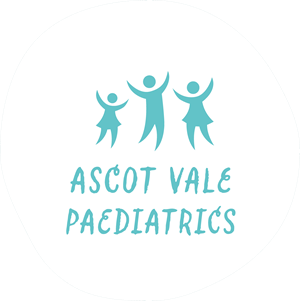Paediatric assessment for a developmental diagnosis
A paediatric assessment for a developmental diagnosis in Australia involves a comprehensive evaluation of a child's physical, cognitive, emotional, social, and communication skills to identify any developmental delays or disorders.
This assessment is typically conducted by a multidisciplinary team, including a paediatrician, psychologist, speech therapist, occupational therapist, and other relevant specialists.
Initial Referral and History-Taking
The process usually begins with a referral from a general practitioner (GP), who has observed or received communication from a maternal and child health nurse, teacher, or another healthcare professional, detailing potential developmental concerns.
At the initial consultation, the paediatrician will take a detailed medical, developmental, and family history, including information on pregnancy, birth, and early development. They will also ask about the child’s milestones, behaviour, learning, social interactions, and any existing health issues.
Developmental Screening and Questionnaires
Parents, and potentially the child’s childcare or school teacher, may be asked to complete questionnaires or screening tools that help assess the child’s development across various domains, such as communication, motor skills, problem-solving, and social interactions.
Parents and caregivers are often asked to provide their observations and concerns about the child’s development, behaviour, and functioning.
Physical Examination
A thorough physical examination will be conducted to assess the child’s growth, motor skills, hearing, vision, and overall physical health. This helps rule out any medical conditions that might affect development (e.g., hearing loss, vision problems, or neurological conditions).
The paediatrician may perform a basic neurological examination to check reflexes, muscle tone, coordination, and other neurological signs.
Specialist Referrals and Additional Tests
Depending on the findings, the child may be referred to other specialists such as a neurologist, geneticist, audiologist, or ophthalmologist for further investigation.
Further assessments of learning, language, cognitive or mental state may also be arranged through referral to a speech therapist, psychologist or neuropsychologist depending on the further information needed to make a diagnosis and plan.
Other tests such as hearing tests, vision tests, blood tests, or genetic testing may be recommended to rule out any underlying medical conditions that could affect development.
Feedback and Diagnosists
After the assessments, a feedback session with the parents or caregivers is scheduled to discuss the results, the child’s strengths and challenges, and any diagnoses that may have been made.
If a developmental disorder (such as autism spectrum disorder, ADHD, or a specific learning disability) is diagnosed, the paediatrician will explain the diagnosis, prognosis, and recommended interventions.
Individualised Plan and Recommendations
Based on the findings, a personalised intervention plan will be developed. This may include recommendations for therapies (e.g., speech therapy, occupational therapy, behavioural therapy), educational support, and other services to support the child’s development.
Families may be referred to early intervention programs, support groups, or community resources to help manage and support their child’s needs.
Sometimes medication may also be recommended and discussed for ADHD, anxiety, sleep or severe behaviours.
Follow-Up and Monitoring
Regular follow-up appointments may be scheduled to monitor the child’s progress, adjust the intervention plan, and address any new concerns or needs.
The paediatrician will often coordinate with educators, allied health professionals, and other specialists involved in the child’s care to ensure a consistent and comprehensive approach.

